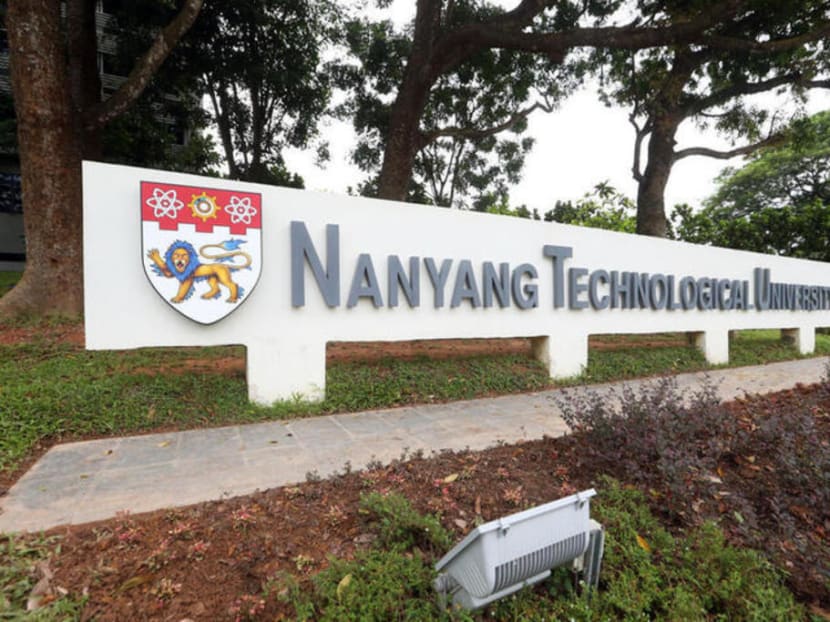NTU to halve carbon emissions by 2035, unveils manifesto to attain carbon neutrality
SINGAPORE — The Nanyang Technological University (NTU) pledged on Monday (Oct 11) to halve its carbon emissions by 2035 as it unveiled its sustainability manifesto to plot the institution’s course in the next 15 years towards attaining carbon neutrality.
- Nanyang Technological University has unveiled a sustainability manifesto
- It will chart the institution’s course in the next 15 years towards attaining carbon neutrality and halving emissions by 2035
- NTU’s corporate and sustainability goals will be backed by a S$1 billion multi-currency bond facility
SINGAPORE — The Nanyang Technological University (NTU) pledged on Monday (Oct 11) to halve its carbon emissions by 2035 as it unveiled its sustainability manifesto to plot the institution’s course in the next 15 years towards attaining carbon neutrality.
Carbon neutrality refers to having net-zero emissions by balancing such discharges with carbon removal.
NTU said in a statement that one of its plans outlined in its sustainability framework is to incorporate sustainability into its new interdisciplinary common core curriculum for all undergraduates.
It will also establish a sustainability office to drive efforts in education, research as well as individual and community engagement.
The office is headed by Professor Madhavi Srinivasan of its School of Materials Science and Engineering and she reports to NTU’s president Subra Suresh.
The university added that it had also launched an interdisciplinary doctoral programme in artificial intelligence (AI) and sustainability to mould scientists with leading-edge knowledge and skills in AI to deal with critical environmental challenges.
Another of the university’s plans is to halve NTU’s net energy and water usage as well as waste generation by March 2026, compared with baseline levels of 2011.
Other plans from NTU’s sustainability framework include:
-
Achieving full Green Mark Platinum certification for all eligible buildings on its main campus. The certification is the highest rating awarded by the authorities for buildings with extensive greenery and healthier indoor environments, and that promote energy and water savings
-
Launching new undergraduate, postgraduate and continuing education programmes on various aspects of sustainability
-
Promoting sustainable food technology solutions, and pathways for food production and minimisation of food waste
NTU believes that its efforts on sustainability must begin with its own actions on campus, it said.
Professor Suresh said that the varsity would encourage and motivate its current and future students and staff members to contribute to its efforts to deal with some of the most pressing global challenges.
SUSTAINABILITY-LINKED BONDS
As part of the manifesto, NTU also announced the set-up of a S$1 billion multi-currency bond facility, or Medium-Term Note programme.
The scheme, along with its sustainability framework, will give it access to capital markets through the issuance of sustainability-linked bonds from time to time.
Sustainability-linked bonds typically come with environmental, social and corporate governance-related targets that issuers commit to attaining. They will amass extra payments to bond-holders if they fall short of these.
On Monday, Moody’s Investors Service announced NTU’s credit rating of “Aaa”, the highest available with minimal risk, along with a baseline credit assessment of “Aaa”.
Those with this credit assessment are judged to have the highest standalone financial strength and are thus subject to the lowest level of credit risk in the absence of any possibility of extraordinary support from an affiliate or a government.
Moody’s also issued a “stable” rating outlook for NTU.
Moody’s said that its rating and assessment reflect several factors, including NTU’s relatively large-scale and strong market profile, a record of healthy financial performance and ample liquidity.
The varsity, it added, also benefits from strong operating, research and funding relationships with the Singapore Government.
OCBC bank is the sole arranger for NTU’s bond programme and is its adviser on ratings and sustainability structuring.
Mr Tan Kee Phong, OCBC’s head of capital markets, said: “This is another step forward in furthering the goals of the Singapore Green Plan 2030, paving the way for more organisations to use sustainable financing avenues to transit towards a climate-aligned economy.”












